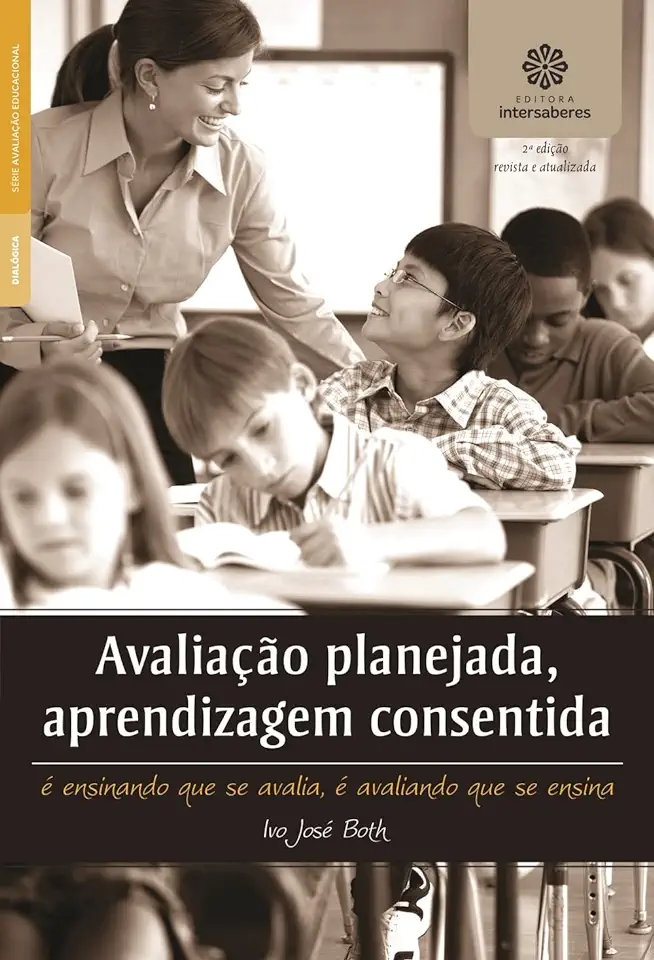
Planned Assessment, Consented Learning - Ivo José Both
Planned Assessment, Consented Learning: A Revolutionary Approach to Education
Introduction
In his groundbreaking book, "Planned Assessment, Consented Learning," Ivo José Both challenges traditional notions of education and presents a revolutionary approach that puts the learner at the center of the learning process. Both argues that assessment should not be a punitive measure, but rather a tool to empower students and guide their learning journey. Through a series of compelling arguments and real-world examples, Both demonstrates how his approach can transform education and create a more engaging and effective learning environment for all students.
Key Concepts
1. Assessment as a Learning Tool
Both argues that assessment should not be seen as a means of measuring students' abilities, but rather as a tool to help them identify their strengths and weaknesses and to guide their learning. He proposes a shift from summative assessment, which occurs at the end of a learning unit, to formative assessment, which is ongoing and provides continuous feedback to students and teachers. This approach allows students to monitor their own progress and make adjustments as needed, leading to deeper learning and greater motivation.
2. Consent-Based Learning
Both introduces the concept of consent-based learning, which emphasizes the importance of obtaining students' consent before assessing their work. This approach respects students' autonomy and agency, fostering a sense of ownership and responsibility for their learning. By involving students in the assessment process, Both argues, we can create a more positive and collaborative learning environment that encourages students to take risks and explore new ideas.
3. Learner-Centered Education
At the heart of Both's approach is the belief that education should be learner-centered, with the student as the primary focus. He advocates for a shift away from teacher-centered instruction and towards a more personalized and individualized approach that takes into account each student's unique learning style, interests, and needs. By empowering students to take control of their own learning, Both argues, we can create a more engaging and effective educational experience that prepares students for success in the 21st century.
Benefits of Planned Assessment, Consented Learning
Both's approach to education offers numerous benefits for students, teachers, and the education system as a whole. Some of the key benefits include:
1. Improved Student Learning
By using assessment as a learning tool and involving students in the assessment process, Both's approach leads to deeper learning and greater retention of knowledge. Students are more motivated and engaged when they understand the purpose of assessment and have a say in how they are assessed.
2. Increased Student Engagement
Consent-based learning creates a more positive and collaborative learning environment, fostering a sense of trust and respect between students and teachers. Students are more likely to take risks and explore new ideas when they feel supported and empowered.
3. Enhanced Teacher-Student Relationships
Both's approach promotes stronger relationships between teachers and students, as teachers become more focused on supporting and guiding students rather than simply evaluating them. This leads to a more positive and productive learning environment for all.
4. Improved Educational Outcomes
By implementing planned assessment and consented learning, schools can improve overall educational outcomes and prepare students for success in higher education and the workforce. Students who have experienced this approach are more likely to be critical thinkers, problem solvers, and lifelong learners.
Conclusion
"Planned Assessment, Consented Learning" is a must-read for educators, policymakers, and anyone interested in transforming education. Ivo José Both's revolutionary approach challenges traditional notions of assessment and learning, and offers a practical framework for creating a more engaging, effective, and learner-centered educational experience. By embracing planned assessment and consented learning, we can empower students, improve educational outcomes, and prepare our children for the challenges of the 21st century.